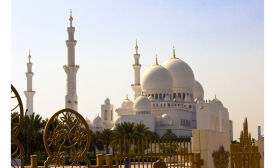middle east
Kuwait’s Ministry of Information announced Thursday the launch of a campaign to support and aid Aleppo and Syrians in need. The ministry has launched a one-week plan on Wednesday to broadcast programs on aiding Aleppo on Kuwait TV, Assistant Undersecretary for Television Affairs Majeed Al-Jazzaf told KUNA.

China is borrowing heavily from U.S.-style diplomacy in the Middle East.
Science diplomacy can of course help countries solve on-the-ground challenges and improve standards of living for their citizens. But it can also lay groundwork for improving relations in a region often defined by tension (if not outright conflict) through functional, scientific cooperation that is less politicized.
Over the past few decades of China’s rise, Beijing’s soft power pitch to the developing east has been an indictment of Ugly Americanism. China had fallen victim to Western and Japanese imperialism, and as a result pledged to act not as a patron but a partner in decolonialism and development.
In the context of this fraught historical moment, Tehran’s new exhibition is being promoted as a bracing act of cultural diplomacy. The exhibition is a collaboration between the government-owned TMoCA, the commercial Mohsen Gallery, and the Emirati Barjeel Art Foundation. It encompasses work from a variety of Arab countries
The Tehran Museum of Contemporary Art (TMoCA) is showcasing a collection of works by Iranian and Arab modern artists in an exhibition titled “The Sea Suspended. [...] features artists from around the Arab world, including Egypt, Iraq, North Africa, the Levant and the Arabian Peninsula. [...] This is the first time that an exhibition of Arab art from the modern period has been showcased in Iran.
Despite Trump’s campaign rhetoric, the US is not in decline. Because of immigration, it is the only major developed country that will not suffer a demographic decline by mid-century; its dependence on energy imports is diminishing rather than rising; it is at the forefront of the major technologies (bio, nano, information) that will shape this century; and its universities dominate the world league tables.







